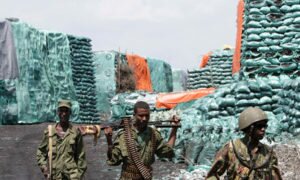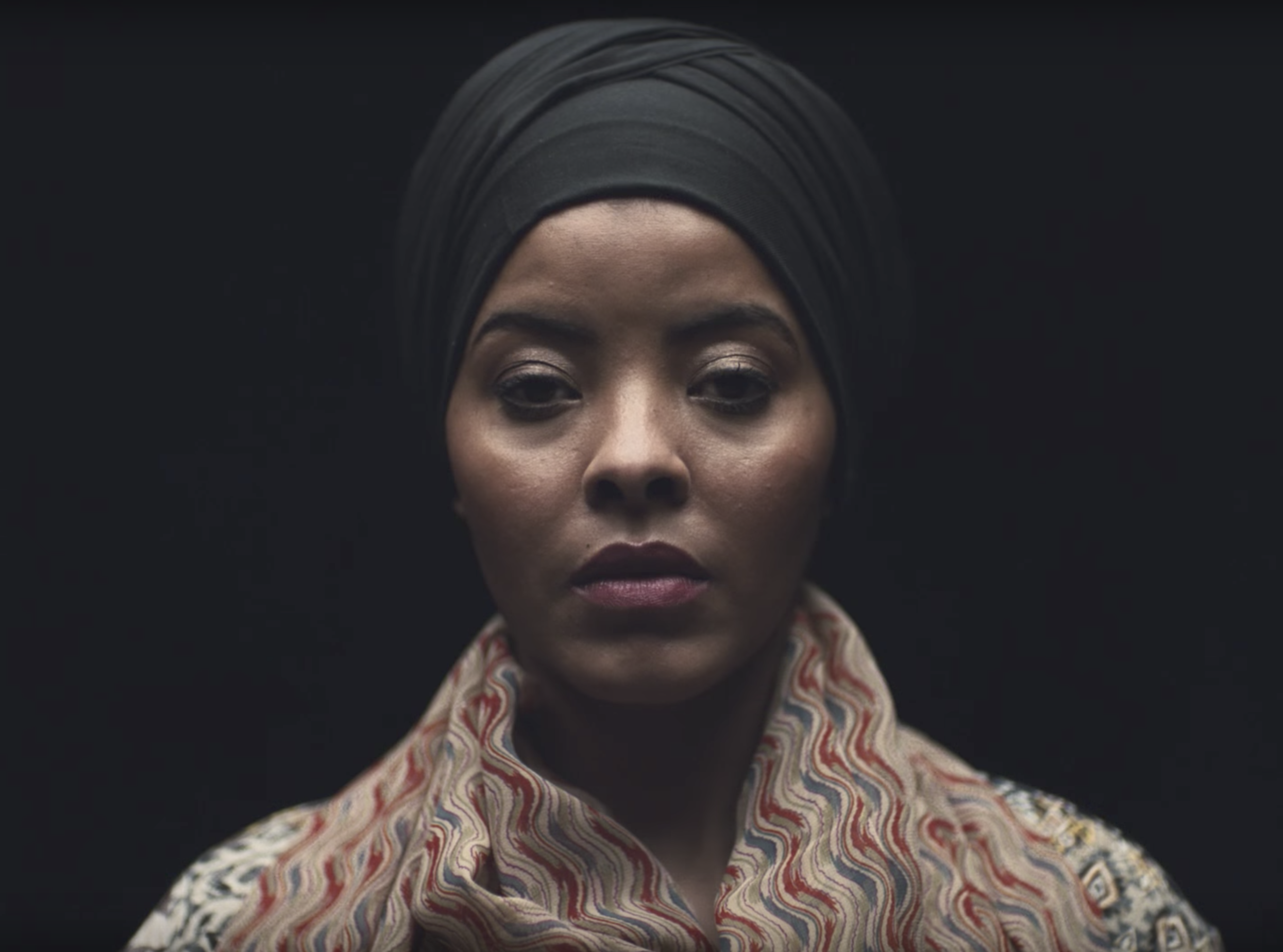Report from
International Refugee Rights Initiative
This report explores some of the key challenges facing the African Union Mission in Somalia (AMISOM) from the perspective of civilians living in the midst of the conflict. Based on interviews with 64 Somali citizens, it shows that many people in Somalia hold views that are critical towards the peacekeeping mission.
The majority of interviewees expressed their discontent with the results achieved by AMISOM, especially its failure to protect civilians against attacks by Al-Shabaab and other armed groups. Its limited results were contrasted with its decade-long presence in the country. AMISOM was created in 2007, and gradually developed into a force with a maximum of 22,126 troops, mandated primarily to reduce the threat posed by Al-Shabaab and to provide security to government institutions and humanitarian actors.
Download The Report Here
Other citizens acknowledged the positive achievements by the mission and the difficult context in which it has to carry out its mandate. While large swathes of the territory are still vulnerable to attacks by Al-Shabaab and other violence, important security gains have been made. Over the years, AMISOM troops have made serious sacrifices.
Many people interviewed by IRRI said there was a clear lack of understanding among Somalis as to AMISOM’s mandate. While most knew that AMISOM is tasked to conduct offensive operations against Al-Shabaab and to protect government institutions, other aspects of the mandate were far less known. This lack of proper understanding of the mandate contributed to severe criticism by some, especially those living in areas with high levels of insecurity.
Several respondents told IRRI that they felt the mission had been unable to provide protection of civilians, which, although not part of their mandate, is a matter of concern for the mission.
Interviewees also expressed general distrust of the foreign presence that AMISOM represents, but specifically highlighted concerns with several national contingents, in particular Ethiopia and Kenya. Both countries have a history of unilateral intervention and difficult civil-military relations in Somalia. Other contingents, such as those from Djibouti, were much better regarded, mainly because of their efforts to build community relations and provide services to nearby communities.
While interviewees held the opinion that the Somali security services are better placed than AMISOM to provide security, they also acknowledged that they lack sufficient capacity and inclusivity. Views on AMISOM’s exit differed.
AMISOM is mandated to enable the handing over of responsibilities to the national security services, and to conduct joint operations with the Somali military. Supporting the development of the Somali security sector was seen as a key activity for international and regional actors, and a precondition for troop reduction or the mission’s withdrawal. The AU has announced that the withdrawal of forces will begin in 2018. However, given that troop-contributing countries have announced their intention to start pulling out even sooner, it is vital that the AU, UN and donors increase their efforts in the field of security sector development. During a conference in London in May 2017, the Somali government and its international partners confirmed the intention to start withdrawing AMISOM troops in 2018, and to step up efforts by the government and its partners to strengthen the Somali security services.
A common observation was that AMISOM fails to sustain its gains against Al-Shabaab. Inhabitants of the city of Marka, for example, complained about the lack of follow-up when their town was taken over by AMISOM. The poorly trained and equipped national security forces could not defend the town, and it therefore shifted hands multiple times between Al-Shabaab and AMISOM/government forces, accompanied by reprisals by Al-Shabaab against civilians accused of collaborating with the latter.
Finally, many interviewees testified about abuses committed by AMISOM forces, including sexual violence, arbitrary detention, incidents leading to the deaths of civilians and the discrimination against Somalis working for the mission.
IRRI was unable to independently verify most of those allegations, but observed a strong deterioration of the perception of the mission by victims of abuses or their families. This was further reinforced by a perception that no credible investigations had taken place and that no perpetrators had been brought to justice. While several mechanisms were set up to deal with such abuses, it seems that there was a lack of awareness of these mechanisms among those affected.
International Refugees Rights Initiative requested a meeting and sent a letter with a summary of its findings to AMISOM, but received no response.
In sum, the findings make it clear that AMISOM needs to address the commonly held perception that it is unable to protect civilians and ensure more effective communication with the local population about the mission’s mandate, activities and exit strategy. The UN Security Council and the AU Peace and Security Council should strengthen the mission’s mandate on civilian protection and build on the London conference to work with the Somali authorities and donors on effective security sector development and with troop-contributing countries on their bilateral activities and accountability for abuses by their troops.










 The Finance Minister of the Federal Government of Somalia has warned foreign firms operating in Halane, the African Union camp in Mogadishu...
The Finance Minister of the Federal Government of Somalia has warned foreign firms operating in Halane, the African Union camp in Mogadishu...

 Addis Ababa - The African Union's new chair Moussa Faki Mahamat on Wednesday questioned US commitment to fighting terrorism on the continent...
Addis Ababa - The African Union's new chair Moussa Faki Mahamat on Wednesday questioned US commitment to fighting terrorism on the continent...

 SAN DIEGO (AP) - Ali Said fled his war-torn Somalia two decades ago after his right leg was blown off by a...
SAN DIEGO (AP) - Ali Said fled his war-torn Somalia two decades ago after his right leg was blown off by a...


 Saudi Arabia, the United Arab Emirates, Bahrain and Egypt have vowed to take 'political, economic and legal measures' after Qatar's refusal to...
Saudi Arabia, the United Arab Emirates, Bahrain and Egypt have vowed to take 'political, economic and legal measures' after Qatar's refusal to...